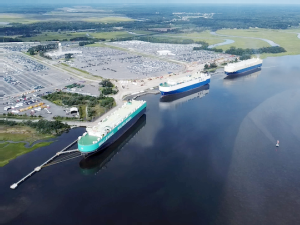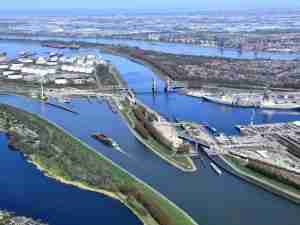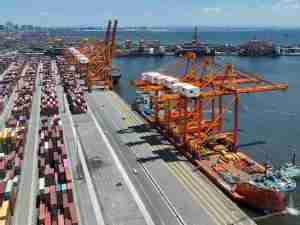The delays to South African shipments, though minor, will exacerbate structural, fundamental tightness in thermal coal supply which has caused a 45 percent rise in prices since October, according to producers, traders and utilities.
International coal prices soared following floods in Queensland, Australia that have caused up to 4.5 million tons of lost thermal coal exports.
Utilities in Asia are scouring the market for alternative cargoes but will find there is nothing to spare from South Africa because most cargoes were committed and stocks are so low that exporters are struggling to meet existing commitments.
Stockpiles Low
Vessels are waiting up to nine days to load at RBCT because there is insufficient stockpiled coal to load at the usual rate, they said.
"Port congestion at Richards Bay has increased to a high level -- as of the beginning of this week, 9 vessels are anchored off Richards Bay, the largest amount since October 2009," said Jeffrey Landsberg, managing director of dry bulk consultancy Commodore Research.
"The derailments have affected the loading of coal shipments," he said.
A South African shipping source said: "The worst was 9-10 days delay to loading so it's not a major problem for South African exports."
This is one more bullish factor for coal, albeit not on the same scale as the Queensland floods, he said.
Between October and late November benchmark coal prices rose from $90 a tonne to $120 because severe rains in Colombia cut around 3 million tonnes from the country's 2010 exports and exporters in Indonesia and Russia were also plagued by weather-related shipment delays.
Prices leapt by a further $14.00 a tonne in late December on expectations of Australian supply losses after the flood new.
Although they fell back, the bull run is by no means over and fresh rains in Australia will help propel prices still higher, analysts, traders and utilities said.
Freight rates are unlikely to be affected because the queues are too short to keep much tonnage out of the freight market, Peter Sand, shipping analyst with ship association BIMCO said.
Stockpiles at RBCT fell to 1.7 million tonnes at the start of the week, largely due to the derailments, producers said.
"Everybody has enough coal at the mines, we don't have enough trains," a producer source said.
The low stockpiles will have a definite impact on first-quarter exports, RBCT chief executive Raymond Chirwa said in a Jan. 4 statement.
South Africa exported 63.43 million tons of coal in 2010 -- less than half Australia's thermal exports -- but is a vital supplier to India, South Korea, Taiwan, and Europ.
So far heavy rains in parts of South Africa have not hit exports -- the problems have been due to slow rail transport. But severe rains in Kwa Zulu Natal have cut mine output and affected supply to state utility Eskom, producers said.
"There are floods in Natal, Ladysmith and Newcastle. It could have some impact on opencast mines, we're having rain but it's not catastrophic," another producer said.
The annual average rainfall for the Mpumalanga coal-producing heartland is around 850 mililitres a year but last year the figure was more than double that, he said.
"In December we had 450 ml of rain, half the annual average in one month," he said. (Reuters)










